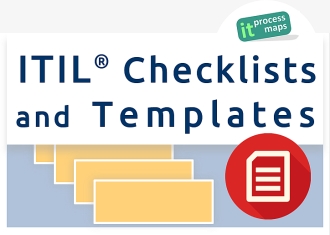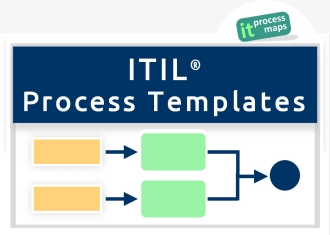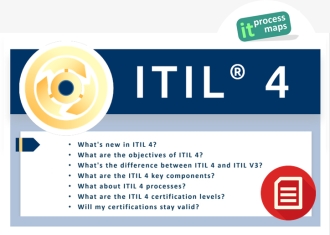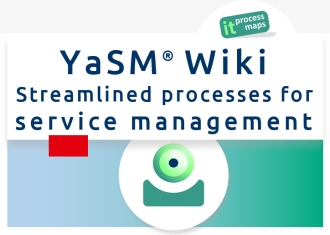Checklist Request for Change RFC: Difference between revisions
New page: '''ITIL Process''': ITIL V3 Service Transition - Change Management '''Checklist Category:''' [[ITIL-Checklists#Checklists ITIL V3 Service Transition|Checklists ITIL V3 Service Tra... |
mNo edit summary |
||
| Line 1: | Line 1: | ||
<seo metakeywords="request for change process, itil rfc process, change request checklist" metadescription="The Request for Change (RFC) is formal request for the implementation of a Change. A Request for Change is to be submitted to Change Management ..." /> | |||
<imagemap> | |||
Image:ITIL-Wiki-de-es.jpg|DE - ES - Checklist Request for Change RFC - Template Request for Change RFC|100px | |||
rect 0 0 50 30 [https://wiki.de.it-processmaps.com/index.php/Checkliste_Request_for_Change_RFC diese Seite auf Deutsch] | |||
rect 50 0 100 30 [https://wiki.es.it-processmaps.com/index.php/Lista_de_control_-_Solicitud_de_Cambio_RFC esta página en español] | |||
desc none | |||
</imagemap> | |||
<br style="clear:both;"/> | |||
'''ITIL Process''': [[ITIL V3 Service Transition]] - [[Change Management]] | '''ITIL Process''': [[ITIL V3 Service Transition]] - [[Change Management]] | ||
'''Checklist Category:''' [[ITIL-Checklists#Checklists ITIL V3 Service Transition|Checklists ITIL V3 Service Transition]] | '''Checklist Category:''' [[ITIL-Checklists#Checklists ITIL V3 Service Transition|Checklists ITIL V3 Service Transition]] | ||
'''Source''': Checklist "Request for Change - RFC" from the [ | '''Source''': Checklist "Request for Change - RFC" from the [https://en.it-processmaps.com/products/itil-process-map.html ITIL Process Map V3] | ||
| Line 52: | Line 61: | ||
## Restrictions | ## Restrictions | ||
## If applicable, reasons for rejecting the RFC | ## If applicable, reasons for rejecting the RFC | ||
<!-- This page is assigned to the following categories: --> | |||
[[Category:ITIL V3|Request for Change RFC]] | |||
[[Category:Checklist (ITIL)|Request for Change RFC]] | |||
[[Category:Service Transition|Request for Change RFC]] | |||
[[Category:Change Management|Request for Change RFC]] | |||
<!-- --- --> | |||
Revision as of 20:34, 26 July 2011
<seo metakeywords="request for change process, itil rfc process, change request checklist" metadescription="The Request for Change (RFC) is formal request for the implementation of a Change. A Request for Change is to be submitted to Change Management ..." />

ITIL Process: ITIL V3 Service Transition - Change Management
Checklist Category: Checklists ITIL V3 Service Transition
Source: Checklist "Request for Change - RFC" from the ITIL Process Map V3
The Request for Change (RFC) is formal request for the implementation of a Change. A Request for Change is to be submitted to Change Management for any non-standard Change (a set of standard/ routine Changes is usually defined by Change Management; these are minor Changes which do not require submission to the Change Management process).
A Change is backed by a Change Owner, holding a budget for its implementation. In many cases the Change Owner is identical with the RFC initiator. Typically Changes are owned by Service Management roles (e.g. the Problem Manager or Capacity Manager) or by IT management.
The RFC is a precursor to the Change Record and contains all information required to approve a Change. Further information is added as the Change progresses through its lifecycle.
The level of detail depends on the size and likely impact of the Change. Often there will be references to further documents containing more detailed information, e.g. a detailed Change proposal. As major Changes are typically implemented as projects, the RFC often takes on the role of what is also known as a “Project Charter”.
- Unique ID
- Date of submission
- Change Owner
- Initiator of the RFC (if not identical with Change Owner)
- Proposed Change priority (e.g. “Very High (Urgent Change)”, “High”, “Normal”, “Low” - may be overruled by Change Management during Change assessment)
- Description of the Change being applied for
- Summary description
- Business case
- Reason for the Change to be implemented
- Costs
- Benefits
- Consequences if the Change is not implemented
- References (e.g. to a Problem Record triggering this RFC)
- Business areas on the client-side affected by the Change
- Services affected by the Change
- IT infrastructure components (CIs) affected by the Change
- Technology aspects (is a new technology being introduced?)
- Risks during the implementation of the Change
- Identified risks
- Counter-measures (e.g. reversion procedure)
- Back-out strategy for the case of a failed Change implementation
- Predicted/suggested time schedule for the implementation
- Estimate of resources for the implementation
- Required personnel resources (from which areas?)
- Estimated work effort for the required personnel resources
- Cost estimate (itemized for bigger Changes)
- Statement as to whether a budget is allocated and cleared for this Change
- If applicable, index of additional supporting documents (e.g. the Service Design Package for major additions or modifications to services)
- Approval or rejection
- Date
- Person/ body in charge of the approval (Change Manager/ CAB/ EC)
- Change reviewers
- Priority assigned by Change Management
- Restrictions
- If applicable, reasons for rejecting the RFC






